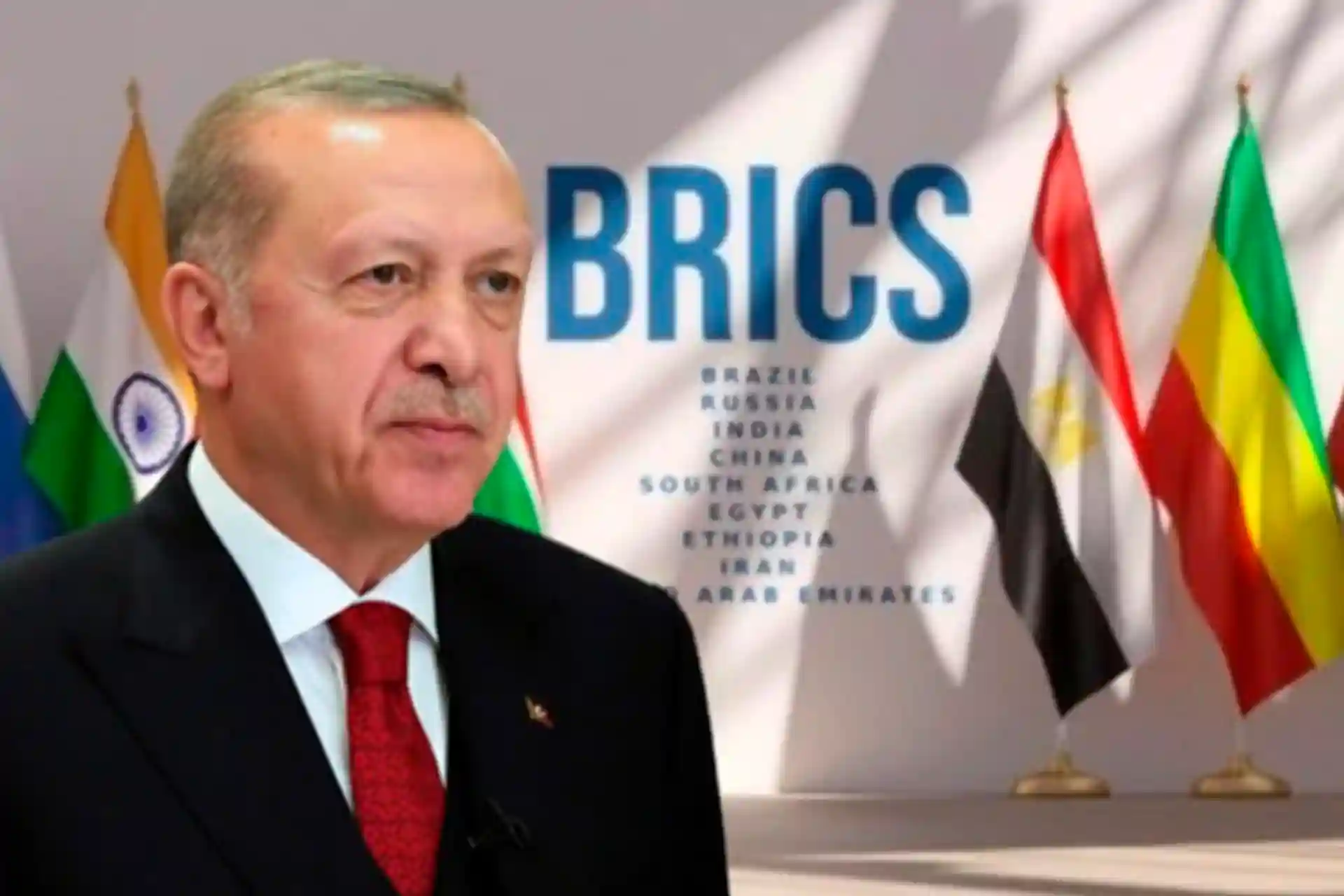Will joining BRICS cost Turkey?
In 2023, the European Parliament decided that Turkey would not be able to join the union until it changed its course. Erdoğan, angered by this decision, announced that "Turkey, which has been "yellowing" in front of the EU gate for 40 years, no longer expects anything from the union." Meanwhile, Ankara has become the first NATO ally to be a candidate for BRICS, and the bloc will consider the request at a summit in Russia in October.
Turkey under the leadership of Recep Tayyip Erdogan has been trying to find its place in Eurasia for a long time. No matter how important economic and security relations with the West are, Ankara wants to be in the center of attention in the East. Especially after the bloodshed in the Middle East, the Turkish state is trying to strengthen its position in cooperation with the main players in the region, such as Russia and China.
Turkey is one of the few Muslim countries with longstanding good business relations with Israel. At the same time , due to its location in Eurasia, the country is surrounded by populism, Western liberalism, the Islamic world, and geopolitical complexities.
Recently, Turkey expressed its willingness to join BRICS: this is the second time Turks have expressed their desire to join China-Russia forums. A few months ago, Erdogan said that "Turkey, which has observer status in the Shanghai Cooperation Organization (SCO), wants to become a full member of the organization."
Meanwhile, Ankara has become the first NATO ally to be a candidate for BRICS, and the bloc will consider the request at a summit in Russia in October.
Ankara's accession to the European Union (EU) has been stalled for a long time. In 1987, it applied to become a member of the then European Economic Community, and in 1999 it was deemed eligible to join the European Union. After that, no significant results were achieved.
In 2023, the European Parliament decided that Turkey would not be able to join the union until it changed its course. Erdoğan, angered by this decision, announced that "Turkey, which has been "yellowing" in front of the EU gate for 40 years, no longer expects anything from the union."
On the other hand, the West and the EU do not want to lose Ankara amid the war between Russia and Ukraine and Europe's growing energy needs. In 2023, Turkey became one of the 5 largest trading partners of the EU, and the share of the total trade volume of the member states of the organization reached 4.1%.
Currently, Turkey's main source of gas and energy is imports from Russia, despite the introduction of sanctions. Also, the geographical importance of Ankara should not be forgotten. The country is a geographical junction between continents, where East meets West. Turkey's orientation towards the East, especially towards Russia and China, is considered a geopolitical failure of the West.
At the same time, Turkey is a country with a place in NATO: its proximity to the border of Russia and China is also of particular importance. Ankara joined NATO in 1952, just three years after the bloc's founding. However, Ankara's recent turn to NATO "enemies" could make it an unreliable ally in the military bloc.
Despite NATO and Western sanctions against Russia over its war on Ukraine, Ankara continues to build defense ties with Moscow. Turkey's earlier purchase of S-400 defense systems from Russia, which "spoilt the mood" of the United States, is a clear example of this. Nevertheless, the Turks are also eyeing American F-16 fighter jets. The two countries recently reached an agreement for 40 F-16s. Until now, the term of this agreement has been postponed under various pretexts.
Joining BRICS would seriously jeopardize Ankara's current role in NATO and would deprive it of membership in the transatlantic alliance.
Leaving NATO will not only limit Turkey's chances of joining the EU, but it may also put it in a difficult situation in terms of Kurdish separatism. The West, which supports separatist groups, can use separatists as a weapon against Turkey.
Although the BRICS membership brings some economic benefits to Ankara, it cannot provide security guarantees. Ankara will have to bear significant strategic and geopolitical costs as its sole objective is to choose an anti-US bloc through closer economic ties and de-dollarization.
This means that no matter how hard Erdogan shows himself as a politician, the country is still under the influence of the West. Ankara's anti-Western rhetoric may secure its entry into the eastern bloc, but strategic and military imperatives make things difficult.
BRICS, like other Sino-Russian-led forums, remains a loosely managed alliance with structural and credibility problems. Perhaps Ankara is also seeking to diversify its alliances. Nevertheless, this position of Turkey causes it to be evaluated by the West as an unreliable partner.

